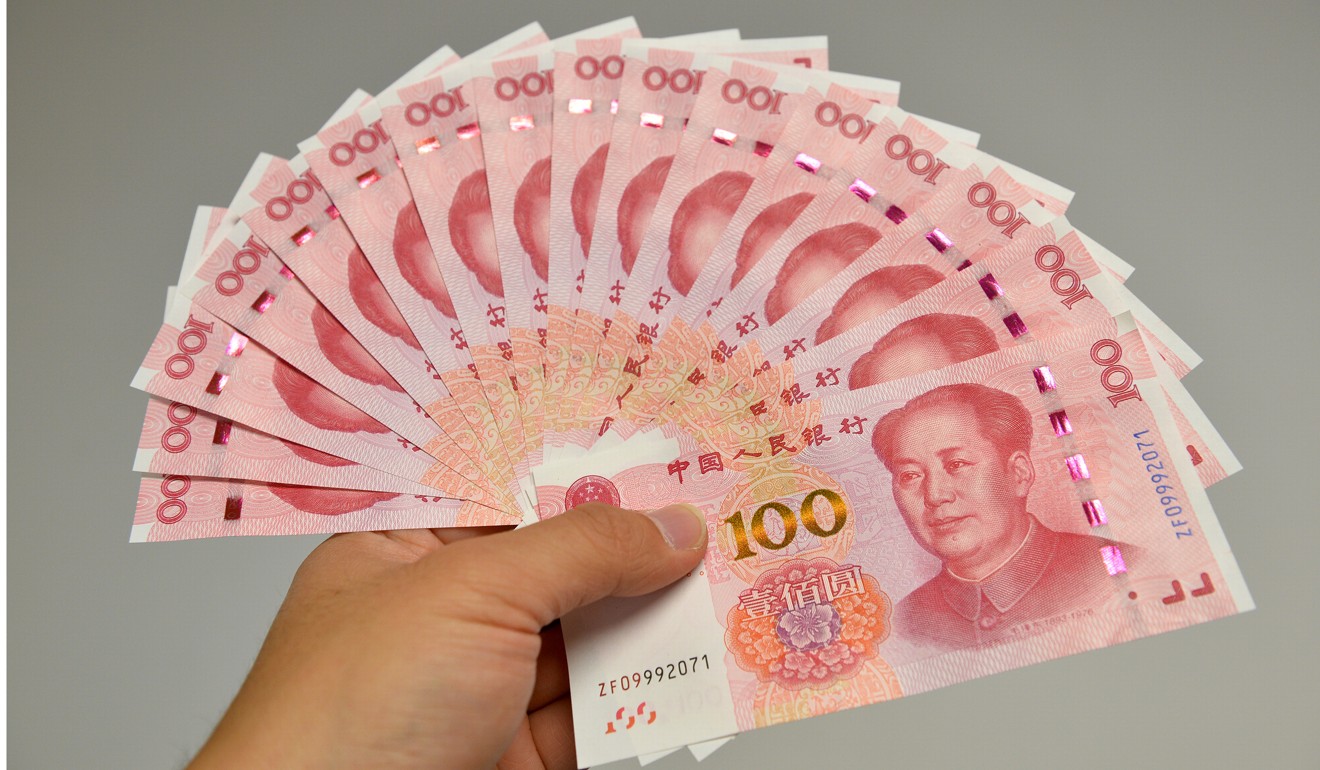
China should promote yuan’s globalisation through cooperation not conflict with US dollar, report says
- Beijing should sign a free-trade deal with Britain as soon as possible and push for better trade and investment cooperation with the EU, Renmin University says
- Promoting global trade will help stimulate use of yuan around the world, experts say
China should avoid going head to head with the US dollar as it seeks to promote the use of the yuan around the world and instead make London a key offshore centre for the yuan while developing opportunities in countries linked to its Belt and Road Initiative, according to new research.
Beijing should also sign a free-trade agreement with Britain as soon as possible, and push for better trade and investment cooperation with the European Union, Renmin University of China said in a report released on Saturday at the International Monetary Forum in Beijing.
The government should also put the internationalisation of the yuan into the context of providing an alternative to the US dollar rather than competing with it for dominance, said the report, which was produced by the university’s International Monetary Institute.
The study came just a week after Chinese President Xi Jinping and US President Donald Trump agreed to resume talks to resolve the trade war and refrain from imposing any further tariffs.
“Friction and competition can spill over into investment, technology, finance, politics and other areas,” the report said.
“China being able to endure external tests and an unfavourable environment … is vital for the yuan’s internationalisation.”
London has provided a gateway for Chinese investment in the Europe. Despite its potential departure from the European Union, it remains a key centre for the yuan in the West, having agreed a 350 billion yuan (US$50.8 billion) currency swap deal with China and holding an 80 billion yuan quota under Beijing’s qualified foreign institutional investor programme.
In the latest sign of financial cooperation between the two countries, the London-Shanghai Stock Connect, which allows foreign firms to list their shares in mainland China, launched on June 17.

The institute’s report highlights the huge increase in the yuan’s internationalisation over the past 10 years under a drive led by the People’s Bank of China.
Speaking at the forum, Wang Fang, the institute’s deputy director, said the yuan’s internationalisation index – which measures how widely currencies are used around the world – had risen to 2.95 per cent in 2018, and to 3.2 per cent in the first quarter of this year, from just 0.02 per cent in 2009.
However, that compares to almost 52 per cent for the US dollar, 25.75 per cent for the euro, 4.4 per cent for the Japanese yen and just under 4 per cent for the British pound.
Just over 2 per cent of global trade was settled in yuan last year, while the currency was used in 4.9 per cent of all international financial transactions, including direct investment, loans and securities, and accounted for just 1.89 per cent of global reserve assets, the report said.

Resolving trade disputes and promoting globalisation were also key to supporting the yuan’s internationalisation, the report said.
“As the US dollar strengthens amid the current international situation, [we] must properly handle the China-US trade dispute, enhance policy communication and coordination,” it said.
“We should also try to bring the trade imbalance [with the US] within a proper range, so as to lay the foundations for a yuan-dollar exchange rate at a reasonable level.”
Hu Xiaolian, chairwoman of the Export and Import Bank of China, a major policy bank, and an advocate for the internationalisation of the yuan while serving as vice-governor of the central bank from 2009-15, said China needed to speed up the use of its currency overseas.
“Certain moves, either disguised as ideological opinion or in the name of protecting national security, have hindered the progress of globalisation in terms of trade, investment, corporate cooperation, technology and people-to-people exchanges. It makes us worried,” she said at the forum, without referring to a particular country.
In its efforts to open up its financial markets Beijing has allocated more investment quotas, launched bond and stock connect programmes, and attached itself to international indices.
It has also developed yuan-denominated commodities futures for gold, iron ore and crude oil, among others, in a bid to secure a greater say in international price-setting.

